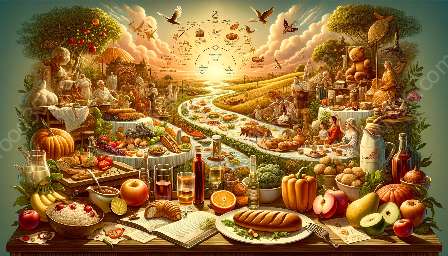Introduction to Ancient Vegetarian Cultures
Ancient vegetarian cultures have a rich and diverse history that dates back thousands of years. These cultures practiced and celebrated vegetarianism for various reasons, including religious, ethical, and health considerations. Their influence on modern vegetarian cuisine is profound and continues to shape culinary traditions and practices around the world.
Ancient Vegetarian Practices
Throughout history, many ancient societies embraced vegetarianism as a way of life. In ancient India, for example, the practice of vegetarianism can be traced back to the Vedic period, around 1500 BCE. Followers of Hinduism and Jainism adopted vegetarian diets as a reflection of their belief in non-violence and compassion for all living beings. The concept of 'ahimsa,' or non-harming, played a central role in shaping the dietary choices of these ancient cultures.
Ancient Greek and Roman civilizations also had their share of vegetarian adherents. The Pythagoreans, followers of the Greek mathematician and philosopher Pythagoras, are known for their strict vegetarian diets. They believed in the interconnectedness of all living creatures and abstained from consuming meat as a way to honor this belief. Meanwhile, in ancient Rome, the philosopher and playwright Seneca promoted vegetarianism as a means of ethical and virtuous living.
The Impact on Modern Vegetarian Cuisine
The influence of ancient vegetarian cultures on modern vegetarian cuisine is evident in the wide array of plant-based dishes and cooking techniques that have been passed down through generations. From the spicy vegetarian curries of India to the hearty legume-based stews of ancient Greece, these culinary traditions continue to thrive and evolve in today's kitchens.
Ancient vegetarian cultures also introduced innovative cooking methods and ingredients that are now integral to vegetarian cuisine. For instance, the use of tofu and tempeh in East Asian cooking can be traced back to ancient Chinese and Indonesian vegetarian practices. Similarly, the cultivation of lentils, chickpeas, and quinoa in ancient Mesopotamia and the Andes region laid the foundation for many staple vegetarian dishes enjoyed worldwide.
Legacy of Ancient Vegetarianism
The legacy of ancient vegetarian cultures extends beyond the realm of cuisine history. Their philosophies and beliefs continue to inspire individuals and communities to adopt plant-based lifestyles for the betterment of their health, the environment, and animal welfare. The enduring appeal of vegetarianism can be attributed, in part, to the enduring wisdom and practices of these ancient cultures.
In conclusion, the exploration of ancient vegetarian cultures offers a glimpse into the diverse and dynamic history of vegetarianism. By understanding their impact on cuisine history, we gain a deeper appreciation for the traditions, values, and flavors that have shaped and continue to define vegetarian cuisine around the world.

